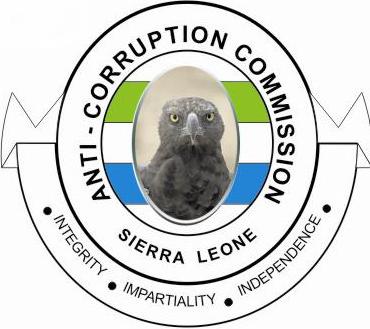WHY IS ASSETS DECLARATION AN ACCOUNTABILITY TOOL IN THE FIGHT AGAINST CORRUPTION?
ARTICLE
By Paul Abu Conteh
Since the passage of the Anti-Corruption Act of 2008, the Anti-Corruption Commission (ACC) has integrated asset declaration as a critical work component. But the momentum increased when Francis Ben Kaifala took charge of the Commission. The ACC Czar presided over the enactment of the National Anti-Corruption Strategy (NACS). The NACS framework has eight pillars: strengthen and enforce anti-corruption laws through exemplary punishment of offenders; improve the integrity of citizens and public institutions; reinforce citizens' empowerment in the fight against corruption; develop a sustainable partnership with stakeholders; strengthen the resourcing, cooperation, and independence of dedicated anti-corruption agencies; build specific programmes to reduce crime and improve integrity in sectors particularly vulnerable to corruption and improve transparency and accountability – which is associated with asset declaration.
Asset declaration is a vital tool to enhance transparency and accountability of public employees as custodians of public resources. The Anti-Corruption Commission Act 2008 mandates public officials to declare their income, assets and liabilitieswith the ACC. The law reads, “every public officer shall within three months of becoming a public officer deposit with the Commission a sworn declaration of his or her income, assets and liabilities and after that not later than 31st March in each succeeding year that he or she is a public officer, he or she shall deposit further declarations of his or her income, assets and liabilities and also while leaving office”.
In a bid to address the challenges posed by the universal declaration imposed on every public officer, the Anti-Corruption (Amendment) Act 2019 limited declaration to public officers who are political appointees, those from grades 7 and above, and accountants, bursars, procurement officers and others holding critical positions but who may fall below grade 7.
Section 119 (1) of the Anti-Corruption Act of 2008 was also repealed and replaced and now requires “Every public officer shall, within three months of becoming a public officer, deposit with the Commission a declaration of his income, assets and liabilities and thereafter in every two years that he is public officer, but not later than 31st March of that second year, deposit further declaration of his income, assets and liabilities and also while leaving office”.
In the area of public officers leaving office due to resignation, dismissal, etc, the Commission does not have to wait any longer for a year (as was provided by the 2008 Act) for them to submit an exit asset declaration form as this period has now been narrowed to three months after leaving office by the Anti-Corruption (Amendment) Act 2019.
The asset declaration process promotes public service integrity, increases transparency and trust, prevents conflict of interest and illicit enrichment.
Integrity is having the moral consistency of displaying positive behaviour. Even though integrity can be a personal discipline, but structured systems help develop this character trait. Asset declaration is one such system. The process mandates public officials to declare their belongings and investments with the ACC. On this line, the leadership of the ACC has led by example. Barrister Kaifala regularly informs staff of his Commission to lead the fight against corruption with integrity, honesty, and decency. The starting point was when he and his senior management team declared their assets.
The trust of the populace is critical in the fight against corruption. The Afro Barometer Corruption Perception Survey in 2015 placed the citizens' confidence in the fight against corruption low. In 2019, during Ben Kaifala's tenure, there was a 26% increase in trust for the Commission among survey respondents. This can be attributed mainly to implementing the law, including the declaration of assets by public officials.
Illicit enrichment means unexplained wealth. The rapid increase in assets of a public official cannot be attributed to the person’s legal income-generating platforms. In asset declaration, public officials are obligated to state what values they own. From their submission, the ACC can make financial projections and establish asset appreciation or depreciation potential. If there is an element of unexplained wealth, the ACC has the legal mandate to bring needed clarity to the situation. Furthermore, conflict of interest would be avoided.
Asset declaration is part of the ACC’s strategy to prevent corruption. The exercise promotes integrity, propels public trust, and prevents conflict of interest and illicit enrichment. The ACC can takeasset declaration a step further by instituting asset profiling. Asset profiling is a system that determines how many assets personnel are expected to have based on their positions, years of service and their present and past cashflows.




